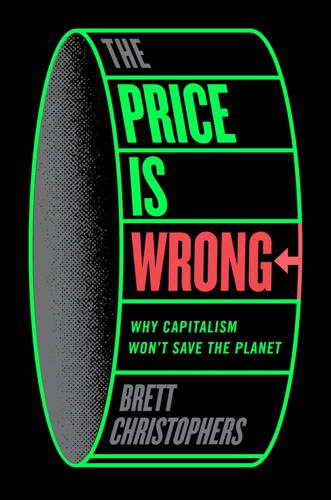
The Price Is Wrong: Why Capitalism Won't Save the Planet
by
Brett Christophers
Published 12 Mar 2024
Not only, moreover, does the left often err in its explanation of why actually existing capitalism has proven so damaging to the environment in general and climate in particular, but, equally, it also often errs in its explanation of what little greening of capitalism has occurred thus far. ‘The advent of green capitalism’, Jake Bittle, for instance, claimed in mid-2022, ‘is the result of a single overwhelming fact: clean energy is good business.’24 Yet this is simply not true. As we shall see, clean energy – or at least, the capitalist production of clean electricity – is ordinarily not a very good business at all. The advent of ‘green capitalism’ (such as it is), rather, is the result principally of government support helping to make clean energy a business that is just about sufficiently profitable to attract investment, combined with a certain willingness in some capitalist quarters to accept lower returns, either in the expectation that green profits will eventually be substantially forthcoming, and thus that there is long-term economic value in establishing first-mover advantage and market leadership, or – whisper it – in the service of delivering the use value of greenness.
…
Yet, to the degree that corporate PPAs are indeed being called upon to supplant government support mechanisms in catalysing renewables investment, this, effectively, is more or less the reality with which we increasingly are faced. It would be difficult to conceive of a more ironic statement on the warped political economy of contemporary green capitalism. An especially bitter irony in this regard is the fact that those firms today enjoying the best publicity vis-à-vis their electricity purchasing habits happen to include some of the worst corporate offenders vis-à-vis carbon emissions. Take Amazon itself, the biggest of the procurers of clean electricity under corporate PPAs.
…
Marx, ‘Theories of Surplus Value’, in Karl Marx and Friedrich Engels: Collected Works, Volume 31: Marx 1861–63 (London: Lawrence & Wishart, 1989), pp. 12–16. 22 M. Levine, ‘Electricity Market Rules Did Not Provide a Worthy Opponent for JPMorgan’s Brainpower’, 30 July 2013, dealbreaker.com. 23 J. Jacobs, ‘Exxon and Chevron Share $100bn in Profit after Surge in Oil Prices’, Financial Times, 1 January 2023. 24 J. Bittle, ‘Everything Has Changed: Green Capitalism and the Climate Left’, 14 June 2022, thedriftmag.com. 25 R. McCracken and H. Carr, ‘Wind Blows Ill for Natural Gas in Texas’, Platts Energy Economist, 1 February 2016. Their observation built upon academic research substantiating exactly this relationship. See, for example, M. J. Barradale, ‘Impact of Public Policy Uncertainty on Renewable Energy Investment: Wind Power and the Production Tax Credit’, Energy Policy 38 (2010), pp. 7698–709. 26 A.
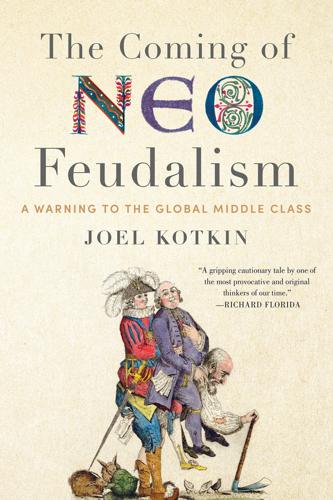
The Coming of Neo-Feudalism: A Warning to the Global Middle Class
by
Joel Kotkin
Published 11 May 2020
By contrast, bans on fossil fuels would seriously harm an oil rigger, factory employee, or construction worker who drives an old truck to work.15 Some environmental zealots, such as the Guardian’s environmental reporter George Monbiot, openly hope for a recession as a way to reduce carbon emissions, even if it causes people to lose their jobs and homes. For this reason, James Heartfield, a Marxist historian, says that “green capitalism” represents a new ruse for the upper classes to oppress those below them. The “Brahmin left” essentially employ a concern for global ecology to force the middle and working classes to absorb the costs of centrally imposed scarcity, under the pretext of “human survival.”16 Literacy and Empowerment While the middle classes are being squeezed by policies they have had little ability to shape, their future is still largely within their own hands.
…
Biron, “In U.S. first, Minneapolis rethinks housing density to make homes cheaper,” Reuters, April 8, 2019, https://www.reuters.com/article/us-usa-housing-cities/in-us-first-minneapolis-rethinks-housing-density-to-make-homes-cheaper-idUSKCN1RK1DX; Leith van Onselen, “UK Moves to Reform Housing Disaster,” New Geography, September 24, 2011, http://www.newgeography.com/content/002458-uk-moves-reform-planning-disaster; Wendell Cox, “The Cost of Smart Growth Revisited: A 40 Year Perspective,” New Geography, July 7, 2011, http://www.newgeography.com/content/002324-the-costs-smart-growth-revisited-a-40-year-perspective; Wendell Cox, “New Index Estimates New House Cost Impact of Land Regulation,” New Geography, November 1, 2010, http://www.newgeography.com/content/001841-new-index-estimates-new-house-cost-impact-land-regulation. 26 Ross Kendall and Peter Tulip, “The Effect of Zoning on Housing Prices,” Research Discussion Paper 2018-03 (March 2018), Economic Research Department, Reserve Bank of Australia, https://www.rba.gov.au/publications/rdp/2018/pdf/rdp2018-03.pdf. 27 Data from Wendell Cox, and from Estimated Urban Land Area: Selected Nations, Demographia, http://www.demographia.com/db-intlualand.htm. 28 James Heartfield, Green Capitalism: Manufacturing Scarcity in an Age of Abundance (London: Mute, 2008), 45–47. 29 Alexandra Stevenson and Jin Wu, “Tiny Apartments and Punishing Work Hours: The Economic Roots of Hong Kong’s Protests,” New York Times, July 22, 2019, https://www.nytimes.com/interactive/2019/07/22/world/asia/hong-kong-housing-inequality.html; Benjamin Haas, “My week in Lucky House: the horror of Hong Kong’s coffin homes,” Guardian, August 28, 2017, https://www.theguardian.com/world/2017/aug/29/hong-kong-coffin-homes-horror-my-week. 30 Ryan Kilpatrick, “Feudalism, not overpopulation or land shortage, is to blame for Hong Kong’s housing problems,” Hong Kong Free Press, June 2, 2018, https://www.hongkongfp.com/2018/06/02/feudalism-not-overpopulation-land-shortage-blame-hong-kongs-housing-problems/. 31 Ben Bland, “Pressure to Spread the Wealth,” Financial Times, May 11, 2018; https://www.nytimes.com/interactive/2019/07/22/world/asia/hong-kong-housing-inequality.html. 32 Bill Emmott, The Sun Also Sets: The Limits to Japan’s Economic Power (New York: Times Books, 1989), 48–49, 79. 33 Emmons et al., “The Demographics of Wealth: How Education, Race and Birth Year Shape Financial Outcomes.” 34 Edward N.
…
__twitter_impression=true. 11 Fred Siegel, The Revolt Against the Masses: How Liberalism Has Undermined the Middle Class (New York: Encounter, 2015), xv. 12 Dennis Meadows et al., Limits to Growth (New York: Signet, 1972), 120–21, 170–71. 13 Spencer Walrath, “Rockefellers Use New Front Group to Advance Climate Liability Campaign,” Energy In Depth, September 28, 2018, https://eidclimate. org/rockefellers-use-new-front-group-to-advance-climate-liability-campaign/; Rupert Darwall, “Democrats’ dark money and the climate industrial complex,” Washington Examiner, May 18, 2018, https://www.washingtonexaminer.com/opinion/op-eds/democrats-dark-money-and-the-climate-industrial-complex; David Friedman and Jennifer Hernandez, California Environmental Quality Act, Greenhouse Gas Regulation, and Climate Change, Chapman University, 2015, https://www.chapman.edu/wilkinson/_files/ghg-fn.pdf; David Callahan, Fortunes of Change: The Rise of the Liberal Rich and the Remaking of America (New York: Wiley, 2010), 57–82; Rupert Darwall, “A Veneer of Certainty Stoking Climate Alarm,” Competitive Enterprise Institute, November 27, 2017, https://cei.org/content/stoking-climate-action. 14 Anand Giridharadas, Winners Take All: The Elite Charade of Changing the World (New York: Knopf, 2018), 7. 15 James Heartfield, Green Capitalism: Manufacturing Scarcity in an Age of Abundance (London: Mute, 2008), 21–22. 16 Ibid., 10, 28; Michael Wirth, “The Tragic Cost of Energy Poverty,” Real Clear Politics, June 26, 2018, https://www.realclearpolitics.com/articles/2018/06/26/the_tragic_cost_of_energy_poverty_137345.html. 17 Max Roser and Esteban Ortiz-Ospina, “Literacy,” Our World in Data, https://ourworldindata.org/literacy. 18 Benjamin Franklin, The Autobiography of Benjamin Franklin (New Haven: Yale University Press, 1964), 130–31. 19 Siegel, The Revolt Against the Masses, 112–15. 20 Nina Metz, “Hollywood’s sweeping generalizations about ‘Mainstream America’ are getting it wrong,” Chicago Tribune, May 24, 2018, https://www.chicagotribune.com/entertainment/tv/ct-ent-inclusion-minorities-0529-story.html; Jason Guerrasio, “The last 16 best-picture Oscar winners show how out of touch Hollywood’s biggest night is with general audiences,” Business Insider, February 25, 2019, https://www.businessinsider.com/best-picture-oscar-winners-compared-to-yearly-box-office-winners-2018-3; Raquel Laneri, “The Oscars’ new ‘popular film’ award proves it’s out of touch and elitist,” New York Post, August 9, 2018, https://nypost.com/2018/08/09/the-oscars-new-popular-ilm-award-proves-its-out-of-touch-and-elitist/; Chris Lee, “Why the Academy Keeps Giving Oscars to Movies No One Sees,” Fortune, February 29, 2016, http://fortune.com/2016/02/29/spotlight-oscars-movies-box-office/. 21 The Numbers, “All Time Worldwide Box Office for Super Hero Movies” https://www.the-numbers.com/box-office-records/worldwide/all-movies/creative-types/super-hero; Erin Free, “The Age of Heroes: Why Are Superhero Movies So Popular?”
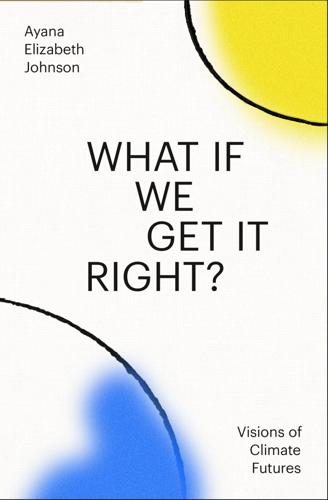
What If We Get It Right?: Visions of Climate Futures
by
Ayana Elizabeth Johnson
Published 17 Sep 2024
Régine: I think about that probably every day. As with any system, capitalism can be shaped by government guidelines and rules. The idea of green capitalism, for example, takes the capitalist system and adds a set of rules and regulations that price in negative environmental externalities (like greenhouse gas emissions). For example, adding disclosure rules for publicly traded companies, so that investors can make better decisions based on the risks associated with CO2 emissions. And then, if you achieve green capitalism, is it sustainable over time? Only if we achieve a regenerative system. A capitalist system inherently requires both constant growth and scarcity of resources.
…
See Green New Deal “Go Farm, Young People, and Heal the Country” (Donahue), 49, 54–55 Goldstein, Miriam, 313, 315, 316, 320 Google, 120, 133, 143 Gore, Al, 267 Gorshkov, Victor, 42 government action. See legislation; public policy Graeber, David, 4n Granholm, Jennifer, 182 Great American Outdoors Act of 2020, 332 green capitalism, 173 Green Climate Fund, 273 greenhouse effect. See global warming greenhouse gases, 16n key emissions sources, 22–23, 34, 56–57, 80, 88 See also carbon emissions; global warming green hydrogen/hydrogen fuels, 184–86, 187, 336 green infrastructure, 92 Green New Deal, 49, 149, 222n, 283–301, 305, 306–7 Gunn-Wright on the framework and its impact, 285–301 the House/Senate resolution, 283, 284 public opinion about, 283–84, 288, 291 greenwashing, 160, 166, 203, 231 See also corporations and corporate responsibility GreenWave, 400, 405–11, 412, 414 See also Smith, Bren grid management, 127 Grijalva, Raúl, 313, 316, 338 Grist, 236, 306 gumption, 4 Gunn-Wright, Rhiana, 49, 285, 421 interview, 285–301 Gutiérrez-Graudiņš, Marce, 316 H Hamer, Fannie Lou, 73 Hansen, Jim, 23, 158 health.
…
Wilkinson) love • biophilia • interdependence • moral compass • community possibility • transformation • imagination • gumption • art • poetry • collective wisdom • vote • protest • donate • spread the word • carbon footprint • our superpowers • climate action Venn diagram • photosynthesis • Paris Agreement • reforestation • mangroves • wetlands • seagrass • kelp • afforestation • biodiversity • carbon sequestration • soil • carbon dioxide removal • wind turbines • transmission lines • solar panels • public transit mitigation • ecological restoration • re-greening • nature-inspired solutions • permafrost • albedo • carbon cycle • water cycle • evapotranspiration • biomimicry • bioregionalism • ahupua‘a • ecological forestry • perennial • agroforestry • land trust • rural repopulation • generational project • climate victory garden • regenerative agriculture • compost • polycultures • cover crops • mulching • no-till farming • collective bargaining • microbiome • farmers markets • community garden • food sovereignty • strikes • boycotts • ritual • food justice certification adaptation • green infrastructure • living breakwaters • oyster reefs • climate-driven relocation • design justice • mending • repairing • recycling • upcycling • rewilding • restorative design • bike lanes • fifteen-minute city • embodied energy • precautionary principle • artificial intelligence • grid management • carbon capture • batteries • progressive taxation • universal basic income • elections divestment • loss-and-damage fund • climate reparations • credit unions • heat pumps • induction cooktops • insulation • public utility commission • net zero • durability • circularity • scope 3 emissions • deep decarbonization • pre-competitive cooperation • enough • subsidies • carbon tax • philanthropy • investment • green capitalism • leadership • electric vehicles • green hydrogen • nuclear power • fusion energy • union labor culture • Hollywood • rom-com • Scully Effect • democracy • local news • solutions journalism • producer responsibility • education • organizing • youth climate movement • climate justice • intergenerational collaboration treaty • negotiations • nationally determined contributions • global stocktake • low-carbon development • leapfrogging • climate finance • political will • carbon markets • emissions trading • emissions budget • Green New Deal • energy efficiency • water efficiency • electrification • high-speed rail • just transition • universal healthcare • tax credits • abolishing the filibuster • voting rights • Blue New Deal • rights of nature • lose loudly • court reform • wildlife corridors disaster justice • building codes • emergency management • justly sourced renewable energy • Indigenous wisdom • traditional ecological knowledge • climate goodbyes • accountability • consume less • climate apocalypse skills • Land Back • Indigenous sovereignty • community development financial institution • devotions • aquifer • free, prior, and informed consent catalytic hope • determination • seaweeds • bivalves • regenerative ocean farming • blue-collar innovation • community-supported fishery • working waterfront • plant-based diets • revenue-based financing • crop insurance • worker cooperatives • working-class environmentalism • implementation • team • leaderful • your climate purpose • tenacious Anti-Apocalypse Mixtape Anthems for victory, love songs to Earth, tunes for tenacity, and sexy implementation vibes. 7 – Prince • Tell Me Something Good – Rufus & Chaka Khan • Our Day Will Come – Fontella Bass • Keep On Pushing – The Impressions • It Ain’t Over ’Til It’s Over – Lenny Kravitz • The Air That I Breathe – The Hollies • Stir It Up – Bob Marley & The Wailers • Here Comes the Sun – Nina Simone • Sunny – Bobby Hebb • Weather Report – The Tennors • Ain’t No Mountain High Enough – Marvin Gaye, Tammi Terrell • Through the Fire – Chaka Khan • Back to Life – Soul II Soul, Caron Wheeler • New World Water – Mos Def • Another Sad Love Song – Khalid • Town & Country – Bibio • Keep a Shelter – Justin Jones • Pulaski at Night – Andrew Bird • Better Than – Lake Street Dive • Light On – Maggie Rogers • Right Down the Line – Lucius • Believer – Emily King • All I Need Is a Miracle – Mike + The Mechanics • Foundations – Kolidescopes • Another Try – Haim • All for Us – Labrinth, Zendaya • How I Feel – Wax Tailor • Didn’t I – Darondo • Come and Be a Winner – Sharon Jones & The Dap-Kings • Love and Peace – Quincy Jones • Lovely Day – Bill Withers • Replay – Tems • Biking – Frank Ocean, Jay-Z, and Tyler, the Creator • Work – Charlotte Day Wilson • In Tall Buildings – John Hartford • Love Is Tall – Oshima Brothers • How Deep Is Your Love – Bee Gees • Working My Way Back to You – George Nooks & Trinity • 9 to 5 – Dolly Parton • Bitch Better Have My Money – Rihanna • Higher Love – Kygo, Whitney Houston • Hold Up – Beyoncé • You’re All I Need to Get By – Aretha Franklin • Dedicated to the One I Love – The Mamas & The Papas • Sunset Lover – Petit Biscuit • A Change Is Gonna Come – Sam Cooke • This Magic Moment – The Drifters • Joy to the World – Three Dog Night • Move On Up – Curtis Mayfield • We Can Work It Out – Stevie Wonder • Hard Road to Travel – Jimmy Cliff • Let Me Let You Go – Mega • Don’t Forget to Breathe – Stormzy, Yebba • You’re Still the One – Caleb Hawley Listen to the playlist at www.getitright.earth What’s next on your reading list?
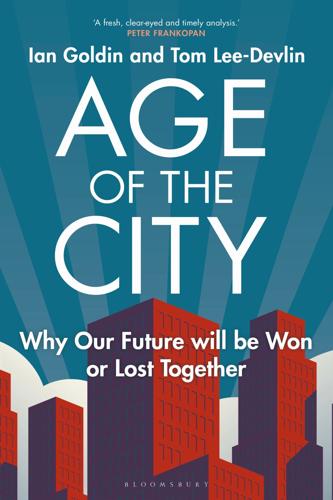
Age of the City: Why Our Future Will Be Won or Lost Together
by
Ian Goldin
and
Tom Lee-Devlin
Published 21 Jun 2023
, BBC (bbc.com). 40 Jones, C. and Kammen, D., 2013, ‘Spatial distribution of U.S. household carbon footprints reveals suburbanization undermines greenhouse gas benefits of urban population density’, Environmental Science & Technology, Vol. 48, No. 2. 41 Ibid. 42 Glaeser, E. and Kahn, M., 2010, ‘The greenness of cities: carbon dioxide emissions and urban development’, Journal of Urban Economics, Vol. 67, No. 3. 43 CoolClimate Network, 2013, ‘Household calculator’ (coolclimate.berkley.edu). 44 Ritchie, H., 2020, ‘Which form of transport has the smallest carbon footprint?’, Our World in Data (ourworldindata.org). 45 Freemark, Y., 2018, ‘Travel mode shares in the U.S.’, The Transport Politic (thetransportpolitic.com). 46 Ibid. 47 Sustain Europe, 2019, ‘Oslo European Green Capital 2019’ (sustaineurope.com). 48 Norwegian Ministry of Petroleum and Energy, 2016, ‘Renewable energy production in Norway’ (regjeringen.no). 49 Ferenczi, A., 2021, ‘A city without cars is already here, and it’s idyllic’, Vice (vice.com). 50 Wilson, E. O., 1984, Biophilia (Harvard University Press). 51 Montgomery, C., 2013, Happy City (Penguin). 52 Trust for Public Land, 2022, ‘ParkScore index’ (tpl.org). 53 Ibid. 54 Singapore National Parks, 2020, ‘Annual report’ (nparks.gov.sg). 55 Singapore National Parks, 2020, ‘A city in nature’ (nparks.gov.sg). 56 O’Sullivan, F., 2019, ‘Paris wants to grow “urban forests” at famous landmarks’, Bloomberg News. 57 Kennedy, C., et al., 2015, ‘Energy and material flows of megacities’, Proceedings of the National Academy of Sciences, Vol. 112, No. 19. 58 Ritchie, H., 2020, ‘Food waste is responsible for 6% of global greenhouse gas emissions’, Our World in Data (ourworldindata.org). 59 Oakes, K., 2020, ‘How cutting your food waste can help the climate’, BBC (bbc.com). 60 Biba, E., 2019, ‘Everything Americans think they know about recycling is probably wrong’, NBC (nbcnews.com). 61 Environmental Protection Agency, 2022, ‘National overview: facts and figures on materials, wastes and recycling’ (epa.gov). 62 Ibid. 63 Villazon, L., 2022, ‘Vertical farming: why stacking crops high could be the future of agriculture’, Science Focus (sciencefocus.com). 64 Maglio, N., 2022, ‘Green forges, how different types of agriculture impact CO2 emissions’, Green Forges (greenforges.com). 65 Ritchie, H., 2019, ‘Who has contributed most to global CO2 emissions?’
…
Stoll, B., et al., 2022, ‘Benchmarking European cities on creating the right conditions for zero-emission mobility’, Clean Cities Campaign (cleancitiescampaign.org). Sturge, G., 2022, ‘Migration statistics’, House of Commons Library (commonslibrary.parliament.uk). Sunstein, C., 2007, ‘Neither Hayek nor Habermas’, Public Choice, Vol. 134. Sustain Europe, 2019, ‘Oslo European Green Capital 2019’ (sustaineurope.com). Swinney, P., 2019, ‘Are cities bad for the environment?’, BBC (bbc.com). Tarigan, E. and Karmini, N., 2022, ‘Indonesia’s sinking, polluted capital is moving to new city’, Associated Press. Tempest, K., 2021, On Connection (Faber & Faber). Thatcher Archive, Interview for Woman’s Own, 23 September 1987, Margaret Thatcher Foundation (margaretthatcher.org).

Bookkeeping the Easy Way
by
Wallace W. Kravitz
Published 30 Apr 1990
< previous page page_174 next page > < previous page page_175 next page > Page 175 Problems (Save your work for use in Chapters 19 and 20.) 18-1 Daniel Green's general ledger account balances are given below: Cash Accounts Receivable Merchandise Inventory Equipment Supplies Accounts Payable Daniel Green, Capital Daniel Green, Drawing Revenue and Expense Summary Sales Sales Returns and Allowances Purchases Purchase Returns and Allowances Miscellaneous Expense Rent Expense Salary Expense Supplies Expense $ 1,200 2,500 5,000 6,000 400 1,800 14,200 ($12,200 plus additional $2,000 investment) 1,500 --- 6,500 250 3,000 150 100 1,200 1,500 --- Complete the work sheet on page 176 for the quarter ended June 30, using the following information for adjustments: Merchandise inventory, June 30 $5,175 Supplies on hand $ 300 18-2 Timothy Sullivan's general ledger is given on pages 177180.
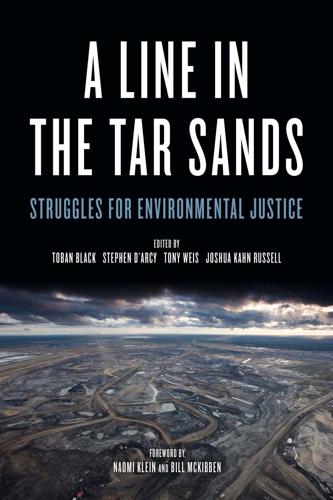
A Line in the Tar Sands: Struggles for Environmental Justice
by
Tony Weis
and
Joshua Kahn Russell
Published 14 Oct 2014
Throughout this chapter, I indicate how ENGOs have, for the most part, shied away from anything that might smack of anti-capitalism, and even from identifying corporate power and profit maximization as central to the problems that they claim to address. On the contrary, many have embraced the frameworks of “green capitalism” or “ethical consumerism”—no doubt, in part, to appease funders and reassure policy-makers of their respectability. ENGOs’ Failure to Address Colonialism and Environmental Racism In Canada, ENGOs have begun to recognize how resource extraction is a racialized issue, in which business priorities outweigh concerns about the pollution and destruction wrought on First Nations communities.
…
See Indigenous peoples First Peoples’ World Conference on Climate Change and the Rights of Mother Earth, 352n11 fish habitats, 152, 254 Flanagan, Thomas, 251 “flexicurity,” 303 food insecurity, 73, 229 Foreign Investment Promotion and Protection Agreement (FIPA), 94; with China, 92–95, 124, 323n9 Fort Berthold Reservation, Three Affiliated Tribes of, 241 Fort Chipewyan (Alberta), 12, 246–48, 254 Forest Ethics Campaign, 272 Fort McKay First Nation, 18 Fort McMurray (Alberta), 11, 14, 255 Fort Saskatchewan (Alberta), 11 Forward on Climate rally, 193 fossil fuels, 27, 49, 300; age of, 4–7, 229–39, 307; dependence on, 24–25, 295, 298, 308; employment in operations of, 305; expanding resistance to, 279–85; “extreme,” rise of, 99–108, 224, 304; G20 commitment to phase out, 33; independence from, 272, 304, 308–9, 318; industry lobbies, 69; as pre-eminent energy source, 297; reduction in, 218; scarcity of, 221; unconventional, 28, 313; unsustainable deployment of, 300 FPIC (free, prior, and informed consent), 119, 257, 265, 268–69 fracking (hydraulic fracturing), 6, 7, 9, 26, 99–100, 117, 158, 191, 204, 236, 281, 283, 308, 313–15 France, Canadian embassy in, 57 Free Trade Agreements (FTAs), 97–98 Free Trade Area of the Americas, 95 Frickel, Scott, 203 Friedman, Thomas, 281 Friends of the Earth Europe, 58–59 gas condensate, 10, 115, 146, 198 Gearon, Jihan, 247 G8 summits, 311 gender: discrimination, 242; disparities based on, 272; politics of, 245 Genie Energy Limited, 105, 107 Gera, Sushma, 56 Gerard, Jack, 221 Gereffi, Gary, 68 Germany, 282 Getty, Don, 115 gichi manidoo (the Great Spirit), 259 Girling, Russ, 77 Gitxaala people, 158 Global Alliance for Incinerator Alternatives, 168 globalization, 25 Global North, 85; gender and racial equality in, 272 Global Oil Shale Holdings, 108 Global Power Shift, 319 Global South, 84–85, 89, 94–95, 303, 311 global warming, 14–15, 218, 229, 305 Glover, Danny, 170 Goldcorp, 164 Goldman Sachs, 160 Goldtooth, Tom, 170, 246–48 Gompers, Samuel, 219 Gonzales, Felix, 214 government stimulus funds, 302 Gramsci, Antonio, 37–39, 43 Grantham, Jeremy, 280 grassroots democracy, 93 grassroots movements, 83, 95, 123, 126, 165, 168–69, 171, 174–75, 204, 209, 212, 234, 236, 240–43, 248, 253, 270–71, 277, 283, 290, 295, 311, 319; and asymmetry, 287–89; Indigenous, 66–75, 259–60, 265; organizing in East Texas, 190–94; women in, 192–93, 277 Gray, Alice, 106 Gray, Vanessa, 135 Great Bear Rainforest, 11, 69–72 Great Bear Rainforest Agreement (GBRA), 71–72 Great Plains Tar Sands Resistance network, 17, 183, 189, 262 “green capitalism,” 69, 73 green economy, 239, 244, 301, 309; limits of within capitalism, 304 green energy, 69 “green growth,” 298, 308; “green jobs” via, 302; and market ecology, 300–301 greenhouse gas emissions (GHGs), 10, 26, 29, 33, 52, 100, 147, 217–18, 297, 308 “Green Intifada” campaign, 106 “green jobs,” 224, 297–309, 318; beyond, 308–9; “brown work” vs., 309; and institutional ecology, 301–4; via “green growth,” 302 Greenland, 14 “green neo-liberalism,” 46 “Green New Deal,” 302, 318 Green Party, 93 Greenpeace, 66, 145, 163, 168, 187, 209, 351n8 “green technologies,” 298 Grimshaw Accord, 115 “Group of Ten,” 67–68 “growth through profit” models, 72 Guatemala, 164 Gulf Coast, resistance to Keystone XL on, 181–94 Gulf of St.
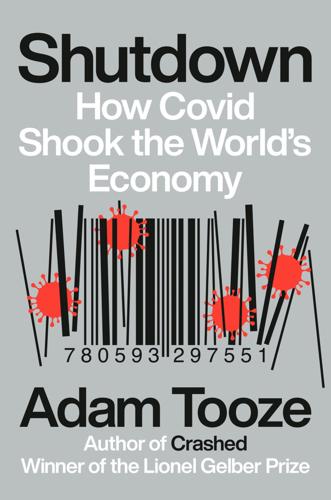
Shutdown: How COVID Shook the World's Economy
by
Adam Tooze
Published 15 Nov 2021
In August, Exxon, once the dominant player in the fossil fuel industry, was dumped out of the Dow Jones Industrial Average Index.39 The weight of fossil-fuel energy corporations in the S&P 500, which in 2008 had touched 16 percent, had fallen by 2020 to a mere 2.5 percent. Wall Street was learning to love green capitalism. If the Democrats took Congress as well as the White House, there would be a huge surge in new debt issuance, but with the Fed as the backstop, they would learn to live with that too. More stimulus was overdue. And what, after all, was the alternative? When Trump was put on the spot by a friendly Fox News anchor about what he actually wanted to achieve in a second term, he had no answer.
…
-China economic competition, 212; and vaccine development and rollout, 238, 243, 285–86; and WHO funding, 32, 33 Ghana, 246, 265, 268 Ghebreyesus, Tedros Adhanom, 70 Gilets Jaunes protests, 83, 288 Global Alliance for Vaccines and Immunizations (GAVI), 33, 236, 243 Global Financial Safety Net, 122, 161 Global Fund to Fight AIDS, Tuberculosis and Malaria, 33 globalization, 3, 5, 17–18, 46, 63, 65, 157–58, 193, 212, 294 Global Vaccine Action Plan, 237 Goldman Sachs, 124, 172, 202, 228 Gorbachev, Mikhail, 18, 77 Gore, Al, 225 Graham, Lindsey, 136 great acceleration, 291–92, 301, 304 Great Depression, 106, 107 Greece, 8, 75, 177, 179, 189, 278, 279, 288 green agenda: and EU environmental policies, 19; and fiscal responses to pandemic, 140; green bonds, 283; green capitalism, 224; Green Deal, 3, 16, 181–82, 186, 188–89, 279; Green Growth, 16; Green New Deal, 11–12, 14, 16, 22, 224, 239, 299; green revolution, 193–94; impact of pandemic shutdowns on, 189–91. See also climate change and agenda GSK Foundation, 237 Guangdong, China, 46, 54, 57, 60, 200 Guatemala, 172 Guedes, Paulo, 171, 173 Guha, Krishna, 122 Guterres, António, 252, 265 H7N9 avian flu, 47 Haiti, 132 Hang Seng Index, 200 Han Zheng, 200 Hawley, Josh, 219, 271, 273, 284 health care systems, 20, 21, 41–42, 44, 169 Heavily Indebted Poor Countries, 254–55 hedge funds, 115, 117–18, 120, 201–2 herd immunity, 53, 81, 226–27 Hildebrand, Philipp, 120 HIV/AIDS, 29, 30–31, 166, 235, 236, 237 Hobbes, Thomas, 34–35 Hokkaido, Japan, 73 Honduras, 165 Hong Kong, 56, 198–200, 200–201, 297 Hong Kong flu (1957-1958), 45, 46 Huawei, 210–11, 212 Hubei province, China, 6, 17, 49, 51–52, 54, 55–58, 62 Human Development Index, 268 Hungary, 248, 279–80, 283 Hussein, Saddam, 18, 77 immunizations.
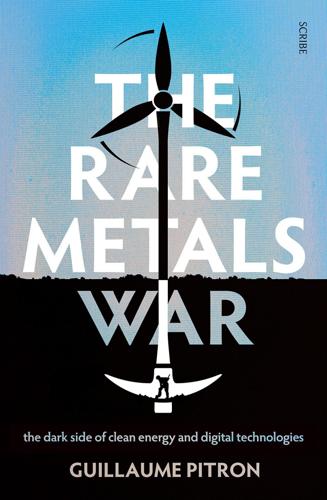
The Rare Metals War
by
Guillaume Pitron
Published 15 Feb 2020
These effectively form the ‘primary asset’ of the Earth’s crust: a concentration of atoms with outstanding properties, fine-tuned by billions of years of geological activity. Once processed industrially, a minute dose of these metals emits a magnetic field that makes it possible to generate more energy than the same quantity of coal or oil. And this is the key to ‘green capitalism’: the replacement of resources that emit billions of tonnes of carbon dioxide with resources that do not burn and therefore do not generate the slightest gram of it. Less pollution, and at the same time a lot more energy. Tellingly, one of these elements was given the name ‘promethium’ by chemist Charles Coryell in the 1940s.6 His wife, Grace Mary, suggested the name, based on the Greek myth of the Titan Prometheus, who was helped by the goddess Athena to break into the realm of the gods, Olympus, and steal the sacred fire … to give to humanity.
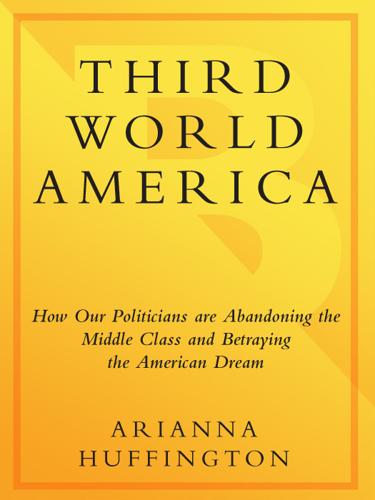
Third World America: How Our Politicians Are Abandoning the Middle Class and Betraying the American Dream
by
Arianna Huffington
Published 7 Sep 2010
To take just one example, as the rest of the economy was shedding jobs in 2009, the solar energy industry added nearly twenty thousand.32 The Solar Energy Industries Association estimates that the solar industry could add up to 200,000 jobs over the next two years if Congress renews various incentive programs that are expiring in 2010.33 Another way of promoting the green economy would be the creation of a national green bank, which, in the words of John Podesta and Karen Kornbluh of the Center for American Progress, would “open credit markets and motivate businesses to invest again,” and “enable clean-energy technologies—in such areas as wind, solar, geothermal, advanced biomass, and energy efficiency—to be deployed on a large scale and become commercially viable at current electricity costs.”34 Such a bank would help loosen the available credit for small businesses and establish a reliable source of funding for entrepreneurs who wish to devote themselves to green technologies and start-ups. Reed Hundt, the Federal Communications Commission chair under President Clinton, is the head of a group called the Coalition for Green Capital, whose goal is “to establish a government-run non-profit bank that would fill the void that exists in clean-energy legislation in America today.”35 According to Hundt, a green bank would create “about four million jobs.”36 Hundt’s proposal has been included in several House and Senate climate and energy bills.
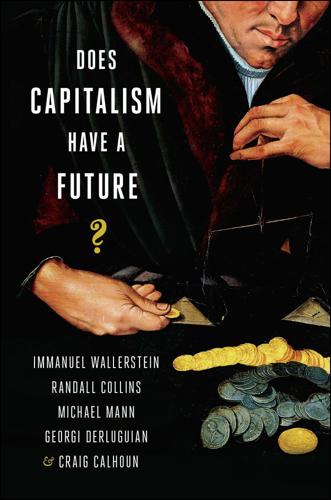
Does Capitalism Have a Future?
by
Immanuel Wallerstein
,
Randall Collins
,
Michael Mann
,
Georgi Derluguian
,
Craig Calhoun
,
Stephen Hoye
and
Audible Studios
Published 15 Nov 2013
One group favors immediate and long-term harsh repression, and has invested its resources in organizing a network of armed enforcers to crush opposition. There is however another group who feel that repression can never work over the long term. They favor the di Lampedusa strategy of changing everything so that nothing changes. They talk about meritocracy, green capitalism, more equity, more diversity, and an open hand to the rebellious—all in the spirit of heading off a system premised on relative democracy and relative equality. The camp of the “spirit of Porto Alegre” is similarly split. There are those whose tactics for the transition period reflect their image of the world they want to build.
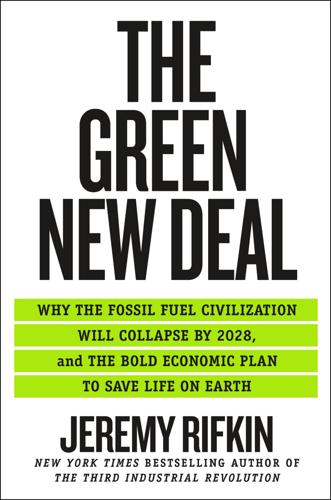
The Green New Deal: Why the Fossil Fuel Civilization Will Collapse by 2028, and the Bold Economic Plan to Save Life on Earth
by
Jeremy Rifkin
Published 9 Sep 2019
Devashree Saha and Mark Muro, “Green Bank Bill Nods to States,” Brookings blog The Avenue, May 20, 2014, https://www.brookings.edu/blog/the-avenue/2014/05/20/green-bank-bill-nods-to-states/ (accessed April 19, 2019). The text of the bill is at https://www.congress.gov/bill/113th-congress/house-bill/4522/text. 36. Coalition for Green Capital, “Example Green Banks,” http://coalitionforgreencapital.com/green-banks/ (accessed April 19, 2019). 37. Chijioke Onyekwelu, “Will a National Green Bank Act Win Support?” Clean Energy Finance Forum, July 18, 2017, https://www.cleanenergyfinanceforum.com/2017/07/18/will-national-green-bank-act-win-support (accessed April 19, 2019). 38.
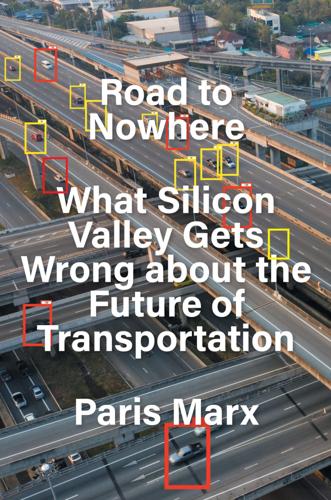
Road to Nowhere: What Silicon Valley Gets Wrong About the Future of Transportation
by
Paris Marx
Published 4 Jul 2022
There is no doubt that electric vehicles, renewable technologies, and transport tunnels (for transit, not for cars) will be integral to the creation of a more sustainable way of life that is necessary to avoid runaway climate change. But the way they are conceived of in the minds of people like Musk—as part of a green capitalism that exists first and foremost to maintain the privileges of elites and derive profit for their benefit—precludes their socially emancipatory uses in favor of continuing a pattern of inequitable development that defines the system of automobility. In short, Elon Musk’s future cities and transport networks are not for us.
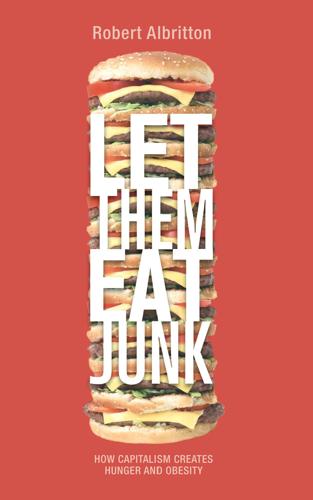
Let them eat junk: how capitalism creates hunger and obesity
by
Robert Albritton
Published 31 Mar 2009
But given the existing “toxic culture of consumerism”,68 and the horrific global inequality that continually pushes people toward consumption choices that undermine human and environmental health, it is unwise to think that global warming can be significantly reduced simply by enlightened individuals changing their consumption patterns. A much more effective strategy of change would be to look at ways of making corporations and markets more democratically accountable. CONCLUSIONS While some consumers are likely to make huge efforts to become more green, capital knows that with its marketing power and with existing widespread poverty, most people will not make radical changes in their life styles. Non-junk foods cost more in the short term, as do fuel-efficient appliances. If the individual is the main focus for change, then change is not likely to be effective, not only because of the unrealistic burden on individuals, but also because we are asking individuals to struggle against the root causes of the problem which remain intact.
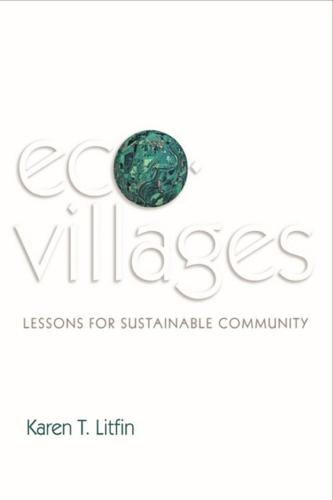
Ecovillages: Lessons for Sustainable Community
by
Karen T. Litfin
Published 16 Dec 2013
Even with a college degree from a top research university, only a small minority of my students will find deeply satisfying work in the way Brian has. Most students graduate heavily in debt, with limited job opportunities and no prospect of owning a home in the foreseeable future. Most importantly, few of them feel as hopeful and empowered as Brian. This man’s personal journey from neo-primitivism to green capitalism represents just one response among many to the issue of economic necessities. Ecovillages are laboratories for economic experimentation. In the fourteen communities I visited, I saw everything from private property to communalism with many permutations in between. I also encountered all manner of innovative financing and investment strategies, and even alternative monetary currencies.

Green Swans: The Coming Boom in Regenerative Capitalism
by
John Elkington
Published 6 Apr 2020
Typically booms are followed by various forms of bust, profound unravelings, triggering adaptation, and, if things go well, recovery. Talk about capitalism, then, and you’re talking about a high-octane and extremely volatile form of wealth creation and destruction. Over the decades, I have explored capitalism and its alternatives, using a wide range of lenses and metaphors, such as green capitalism, the triple bottom line, the chrysalis economy, and breakdown and breakthrough. As I look back, the aim throughout was to compare and contrast two different trajectories in our world: Black Swan dynamics that (in malign cases) led to chaos and even extinction, and the Green Swan dynamics that potentially lead, via evolution and adaptation, to a better place.
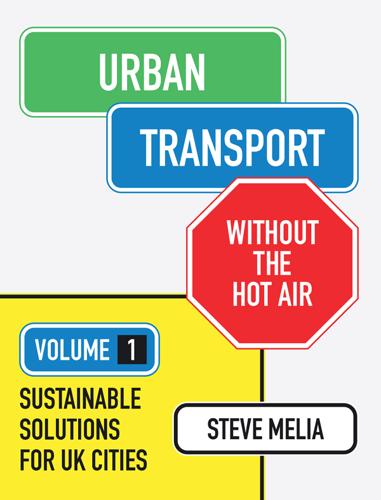
Urban Transport Without the Hot Air, Volume 1
by
Steve Melia
Freiburg, Germany279 My first destination in 2006 was Freiburg, a city in south-west Germany with a population of around 230,000 (about the same size as Southampton in the UK). Surrounded by the Black Forest and the wine growing area of the Rhine valley, it has acquired a reputation as Germany’s green capital: a centre for the solar industry and a wealthy, growing city where people move for a better quality of life. It wasn’t always like this. In the 1950s and 1960s, it was a conservative provincial town with a growing traffic problem, which the authorities were struggling to address through road building and more parking.
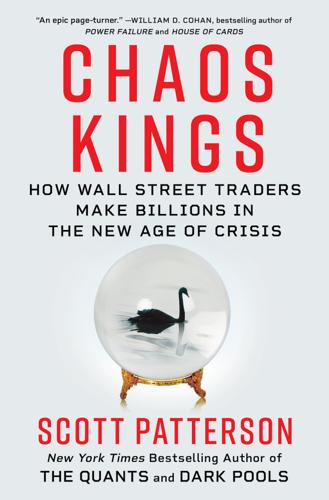
Chaos Kings: How Wall Street Traders Make Billions in the New Age of Crisis
by
Scott Patterson
Published 5 Jun 2023
If the Oxford projection was true, that meant global energy production by 2050 would be far cheaper—and far less damaging to the planet—than it currently is. It would, in fact, result in net savings of trillions, the scientists claimed. “These are profound economic shifts,” Reed Hundt, chairman of the Federal Communications Commission during the Clinton administration and a founder of the Coalition for Green Capital, told me. “The direction set by the market is to go to the cheapest possible fuels—which are wind and sun.” Spurring the transition were the Biden administration’s plans to funnel hundreds of billions of federal spending and incentives into clean energy and other technologies designed to reduce America’s carbon footprint.
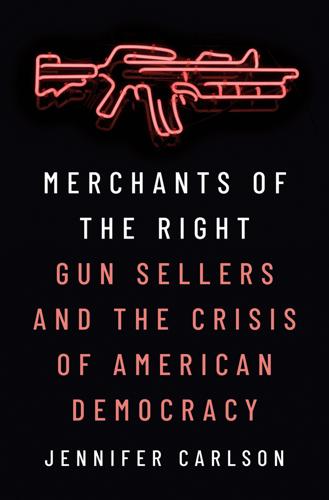
Merchants of the Right: Gun Sellers and the Crisis of American Democracy
by
Jennifer Carlson
Published 2 May 2023
For those conservatives unnerved by the association of high-end coffee with liberalism, they can now comfortably shop at outlets like Black Rifle Coffee (the “Starbucks of the Right,” ventured the New York Times15), Covfefe Coffee and Gifts in Maine,16 and Conservative Grounds in Florida.17 (Liberals, for their part, can shop at outfits like Starbucks, which markets coffee by appealing to diversity and inclusion, green capitalism, and community uplift.18) As Conservative Grounds co-owner Cliff Gephart noted to the Washington Post, “it’s a place for conservatives to feel welcome … it’s about a conservative lifestyle.”19 Politics has swelled beyond a set of beliefs to shape lifestyles—hence the grain-of-truth stereotypes of the “bird hunting conservative” and the “latte liberal.”20 This partisanization of everyday life both reflects and is reinforced by geographical sorting that has increasingly isolated Americans ideologically, a process that began in the 1970s according to journalist Bill Bishop, author of The Big Sort.21 Since then, communities within the United States have only become more politically homogeneous as people have increasingly “voted with their feet” by seeking out places that “feel” comfortable.
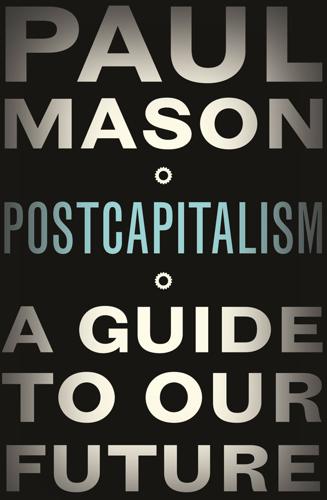
Postcapitalism: A Guide to Our Future
by
Paul Mason
Published 29 Jul 2015
As The Economist magazine put it: ‘For established utilities … this is a disaster … you cannot run a normal business, in which customers pay for services according to how much they consume, if prices go negative.’9 In many countries, energy policy is paralysed – not just by the lobbying power of oil and gas, but also by the difficulty of forcing behaviour change using market forces – e.g. higher prices – rather than by undertaking a rational redesign of the whole system. For the advocates of green capitalism, it is easier to imagine the end of the world than to imagine a non-market, low-carbon economy. So we need to imagine better. HOW TO AVERT CLIMATE DISASTER Climate science tells us that, in order to keep the temperature rise to around two degrees, we need to halve the amount of CO2 we burn by 2050.
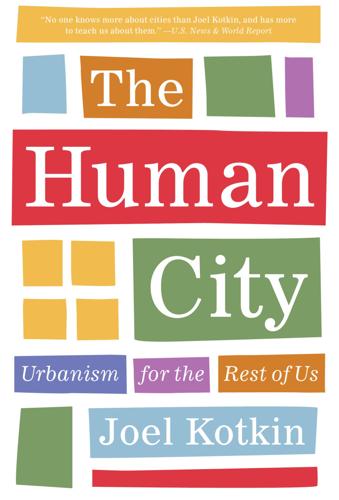
The Human City: Urbanism for the Rest of Us
by
Joel Kotkin
Published 11 Apr 2016
Building Suburbia, New York: Vintage Books. HAYES, Patrick. (2011). “The Crowded City,” The Lure of the City: From Slums to Suburbs, London: Pluto Press. HEARTFIELD, James. (2006). Let’s Build: Why We Need Five Hundred Million New Homes in the Next Ten Years, London: Audacity. ——— (2008). Green Capitalism: Manufacturing Scarcity in an Age of Abundance, Berlin: Mute Publishing. HEATHCOTE, Edwin. (2006, May 10). “I love the vitality of this high rise city,” Financial Times. HEAVENS, Al. (2004, October 13). “Active-Adult Boomers Still Favor Suburbs,” Realty Times, http://realtytimes.com/consumeradvice/newhomeadvice1/item/11550-20041014_boomers.
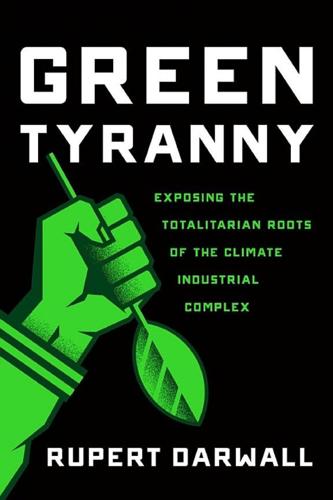
Green Tyranny: Exposing the Totalitarian Roots of the Climate Industrial Complex
by
Rupert Darwall
Published 2 Oct 2017
In 2013, America surpassed Saudi Arabia in combined oil and natural gas liquids output and surpassed Russia in natural gas.46 It destroyed the argument for renewable energy based on the specter of looming resource shortages. Hydrocarbons were as abundant as they’d ever been. Reason should have laid to rest the case for renewable energy, but rationality was a casualty of green ideology and the insatiable greed of green capital. For the Climate Industrial Complex, the fuel-economy rules were the appetizer. Regulating power station emissions was the entrée. Not for want of trying on the part of the EPA, by summer 2011 the original timetable in the sue-and-settle agreement had slipped badly. In September the heads of 19 NGOs wrote President Obama a peremptory letter about the delay and demanded that the EPA stick to the agreed remedial timetable and issue the proposed power plant rules as soon as possible in 2012.
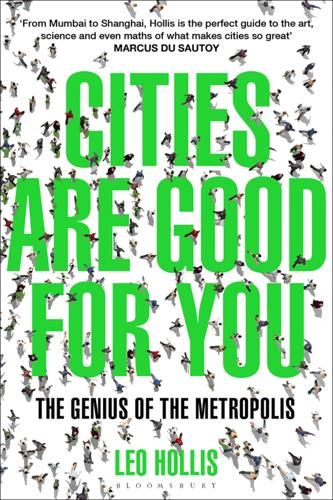
Cities Are Good for You: The Genius of the Metropolis
by
Leo Hollis
Published 31 Mar 2013
How do we bring people together through this transformation, so that it occurs with them, rather than to them? Stockholm presents the perfect balance between preserving the heritage of the city while also showing a determination to prepare for the future. In 2010 Stockholm was named the European Green Capital of the Year. This was partly in recognition of the efforts already made by the city, but also because of its future programme, Vision 2030, which identified six main areas for new policy: changing transport policy to make it more environmentally efficient with an emphasis on reducing carbon emissions; encouraging green cars and public transit, and providing bike lanes; reducing the use of toxic chemicals in manufacturing and construction; more efficient use of energy, water and land; improving waste management; and finally ‘a healthy indoor environment’: upgrading social housing and reducing noise pollution.
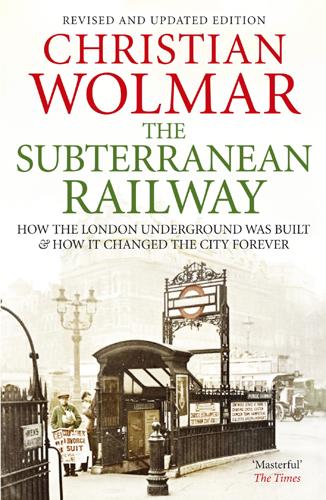
The Subterranean Railway: How the London Underground Was Built and How It Changed the City Forever
by
Christian Wolmar
Published 30 Sep 2009
Even today, London Transport receives around half the level of subsidy in relation to income compared with its counterparts in European cities – typically only 30 per cent of its money comes from subsidy, compared with twice that level in Paris or Berlin. 3 The Times, 24 June 1907. 4 By coincidence, both momentous years in the future history of London’s transport system: the creation of London Transport and its nationalization. 5 The family was originally called Knattriess. 6 Stanley told this story, for which there is no contemporary evidence, much later in life. 7 Much was well designed, such as the folding card for the Hampstead, which, when opened, revealed a tube train emerging from a tunnel. 8 The early maps all fall into the trap of trying to represent the real path of the Underground rather than the schematic illustration which Beck introduced. 9 The Times, 7 October 1908. 10 Alan A. Jackson and Desmond F. Croome, Rails through Clay, George Allen & Unwin, 1962, p. 137. 11 Ibid., p. 149. 12 Ibid., p. 143. 13 John Betjeman, London’s Historic Railway Stations, John Murray, 1972. 14 Piers Connor, Going Green, Capital Transport, 1993, p. 40. Chapter Ten: THE UNDERGROUND IN THE FIRST WORLD WAR 1 Stephen Halliday, Underground to Everywhere, Sutton Publishing, 2001, p. 151. 2 Railway Gazette, 5 October 1917. 3 Cited in John Gregg, The Shelter of the Tubes, Capital Transport, 2001, p. 5. 4 Interestingly, work on that railway, with its little two-foot gauge trains and nine-foot diameter tunnels, continued despite the war until 1917, but it was not actually fully fitted out and opened for a further decade. 5 Alan A.

Lonely Planet Wales (Travel Guide)
by
Lonely Planet
Published 17 Apr 2017
Machynlleth Pop 2235 Little Machynlleth (ma-hun-khleth) punches well above its weight. Saturated in historical significance, it was here that nationalist hero Owain Glyndŵr established the country's first parliament in 1404. But even that legacy is close to being trumped by Machynlleth's reinvention as the green capital of Wales – thanks primarily to the Centre for Alternative Technology (CAT), 3 miles north of town. The centre has given Machynlleth an eco-magneticism that attracts alternative lifestylers from far and wide. If you want to get your runes read, take up yoga or explore holistic dancing, Machynlleth is the ideal place for you.
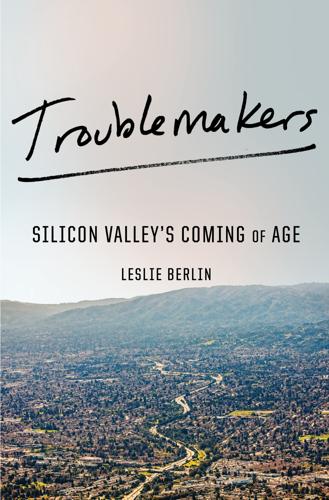
Troublemakers: Silicon Valley's Coming of Age
by
Leslie Berlin
Published 7 Nov 2017
Wozniak demonstrated a few programs that he had written in a version of BASIC that he had built into the computer’s memory.10 Wozniak also showed Markkula how he had designed the computer to be flexible and expandable by including slots for users to plug in peripherals such as printers and cassette players to store data.11 Markkula, with his Model 33 Teletype in his home office and his familiarity with several programming languages, considered himself a fairly advanced lay user of computers. But this display astonished him. Small computers like Wozniak’s typically could do one thing: display green capital letters on a black background. But here were multiple colors. Graphics. Sound. Games. A built-in programming language. Markkula found it hard to believe that he was seeing these in a computer in some guy’s Los Altos garage. Such advanced features were the stuff of machines costing tens of thousands of dollars, built by teams of engineers at some of the world’s most famous companies.IV Markkula’s amazement only grew when Wozniak cleared the table to reveal the computer’s circuit board.
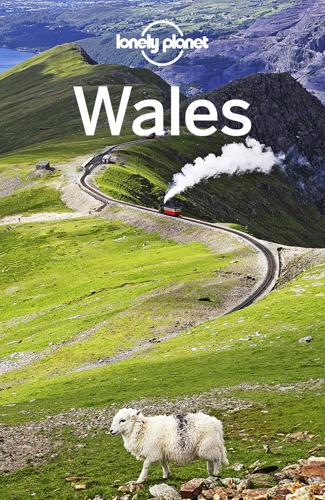
Lonely Planet Wales
by
Anna Kaminski;Hugh McNaughtan
Machynlleth POP 2200 Little Machynlleth (ma-hun-khleth) is saturated in historical significance: the town was the site where nationalist hero Owain Glyndŵr established the country’s first parliament in 1404. Oddly, that legacy is not widely known or enthusiastically celebrated, and Machynlleth is perhaps better known as the country’s green capital – thanks to the Centre for Alternative Technology, 3 miles north, and its proximity to cycle-path-laced forested hills. Machynlleth is a surprisingly cosmopolitan local town, with some fantastic sleeping and eating options scattered about. Machynlleth 1Top Sights 1MOMA MachynllethB1 1Sights 2Owain Glyndŵr CentreC1 4Sleeping 3WynnstayB2 5Eating 4Number Twenty OneB1 1Sights oCentre for Alternative TechnologySCIENCE CENTRE (CAT; Canolfan y Dechnoleg Amgen; %01654-705950; www.cat.org.uk; Pantperthog, SY20 9AZ; adult/child £6.50/5.50; h10am-5pm; pc) S A small, dedicated band of enthusiasts have spent 40 years practising sustainability at the thought-provoking CAT, set in the Dyfi Unesco Biosphere Reserve, north of Machynlleth.
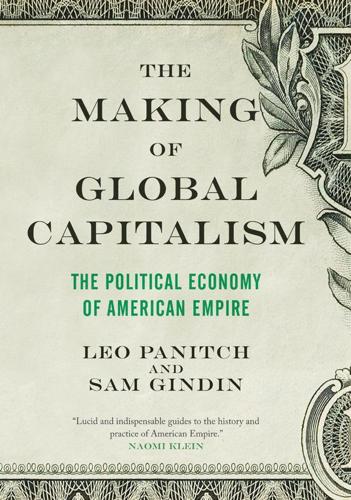
The Making of Global Capitalism
by
Leo Panitch
and
Sam Gindin
Published 8 Oct 2012
Even when states committed in 2009 to stimulate their economies, they felt impelled at the same time to lay off public-sector workers or cut back their pay, and to demand that bailed-out companies do the same. And while blaming the volatile derivatives market for causing the crisis, states promoted derivatives trading in carbon credits in the hope that green capitalism would provide a two-for-one remedy for the global climate and economic crises. In the context of such readily visible irrationalities, a strong case can be made that, if jobs and the communities that depend on them are to be saved in a way that will convert production and distribution to conform with ecologically sustainable priorities, there must be a break with the logic of capitalist markets rather than the use of state institutions to reinforce them.
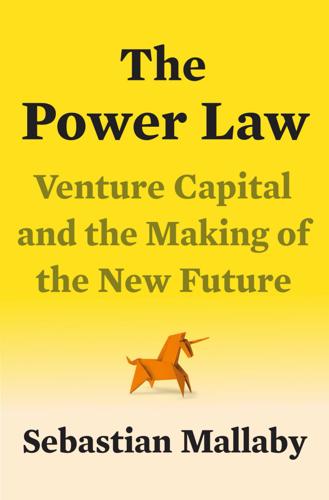
The Power Law: Venture Capital and the Making of the New Future
by
Sebastian Mallaby
Published 1 Feb 2022
Metcalfe suspected collusion. The Valley network was bountiful, but it could also feel like a cartel. It was ganging up against him. Metcalfe resolved to cast his net wider. He was not going to pay for the privilege of raising money from a brand-name Valley venture firm. Boston financiers had money that was just as green. Capital was a commodity. The good news for Metcalfe was that Boston venture capitalists were properly impressed by the hiring of Krause. They liked to invest in ready-made teams. 3Com now had a top-flight inventor and a top-flight manager. Pretty soon, Fidelity Ventures, the VC branch of the storied Boston money house, announced that it would finance 3Com at $21 per share.
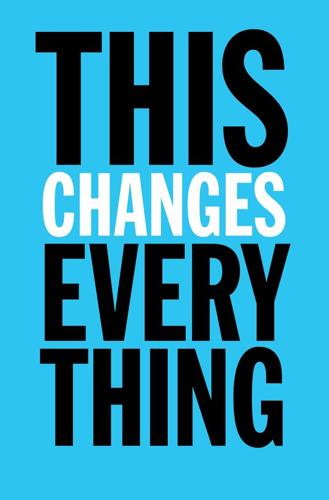
This Changes Everything: Capitalism vs. The Climate
by
Naomi Klein
Published 15 Sep 2014
Most of them were quietly measuring ice cores, running global climate models, and studying ocean acidification, only to discover, as Australian climate expert and author Clive Hamilton puts it, that in breaking the news of the depth of our collective climate failure, they “were unwittingly destabilizing the political and social order.”55 Nonetheless, that order has now been destabilized, which means that the rest of us are going to have to quickly figure out how to turn “managed degrowth” into something that looks a lot less like the Great Depression and a lot more like what some innovative economic thinkers have taken to calling “The Great Transition.”56 * * * Over the past decade, many boosters of green capitalism have tried to gloss over the clashes between market logic and ecological limits by touting the wonders of green tech, or the “decoupling” of environmental impacts from economic activity. They paint a picture of a world that can continue to function pretty much as it does now, but in which our power will come from renewable energy and all of our various gadgets and vehicles will become so much more energy-efficient that we can consume away without worrying about the impact.

Lonely Planet Eastern Europe
by
Lonely Planet
,
Mark Baker
,
Tamara Sheward
,
Anita Isalska
,
Hugh McNaughtan
,
Lorna Parkes
,
Greg Bloom
,
Marc Di Duca
,
Peter Dragicevich
,
Tom Masters
,
Leonid Ragozin
,
Tim Richards
and
Simon Richmond
Published 30 Sep 2017
On day three, head east to elegant, Saxon-tinged Sibiu, before pressing on to Braşov on day four. Allow three days to traipse Braşov's forested hills, meander medieval laneways and day-trip to bear country or dramatic Bran Castle. Start week two by bidding goodbye to the beaten track and entering lost-in-time Moldova. Spend a day or two exploring gritty but green capital Chişinău: excellent local wine is plentiful and cheap, and stately monuments jostle alongside decaying Soviet relics. Allow one day to visit the stunning cave monastery at Orheiul Vechi (Butuceni), and another to time-travel into Transdniestr, a country that doesn't officially exist. In the fascinating 'capital' Tiraspol little appears to have changed since the Soviet era of the mid-'80s.

Lonely Planet Western Balkans
by
Lonely Planet
,
Peter Dragicevich
,
Mark Baker
,
Stuart Butler
,
Anthony Ham
,
Jessica Lee
,
Vesna Maric
,
Kevin Raub
and
Brana Vladisavljevic
Published 1 Oct 2019
If you’re close enough to spot the horn, you’re too close. Positive Steps Slovenia has some of the purest drinking water in the world, and in 2016 its parliament added the right to drinkable water to the country’s constitution. In the same year the European Commission awarded Ljubljana the title of European Green Capital in recognition of the pedestrianisation of much of the city centre, the promotion of environmentally friendly transport such as cycling, and the provision of free drinking fountains to discourage people from buying bottled water. In North Macedonia, millions of trees have been planted each year since the inaugural national tree-planting day in 2008 when 200,000 Macedonians planted more than two million trees (one for every citizen) to heal patches of forest devastated by fires.

The Rough Guide to France (Travel Guide eBook)
by
Rough Guides
Published 1 Aug 2019
At the heart of this ambitious regeneration project stands a must-see attraction, the Machines de l’Île – home of the Grand Éléphant – but the city as a whole is also scrubbed, gleaming, and suffused with a remarkable energy. In 2013, Nantes became the first French city to be awarded European Green Capital. As the capital of an independent Brittany, Nantes was a considerable medieval centre. Great wealth came later, however, with the growth of Atlantic trade; by the end of the eighteenth century, it was the principal port of France. An estimated 500,000 Africans were carried into slavery in the Americas in vessels based here, and even after abolition in 1817 the trade continued illegally.

Great Britain
by
David Else
and
Fionn Davenport
Published 2 Jan 2007
Return to beginning of chapter MACHYNLLETH pop 2200 Tiny Machynlleth (ma-hun-khleth) punches well above its weight. The town is rich in historical importance as it is here that nationalist hero Owain Glyndŵr defied the English to establish the country’s first parliament in 1404. His legacy still lends Machynlleth a noble air but, more recently, the town has reinvented itself as the green capital of Wales and a centre for alternative communities. See www.ecodyfi.org.uk for more details. Leading the green movement is the excellent Centre for Alternative Technology (CAT; see the boxed text), which has been quietly championing sustainable living for more than 30 years. Machynlleth, set amid lush Welsh countryside, is also a good walking base with trails through the Dyfi Valley, and an ideal base for mountain-biking (see opposite).